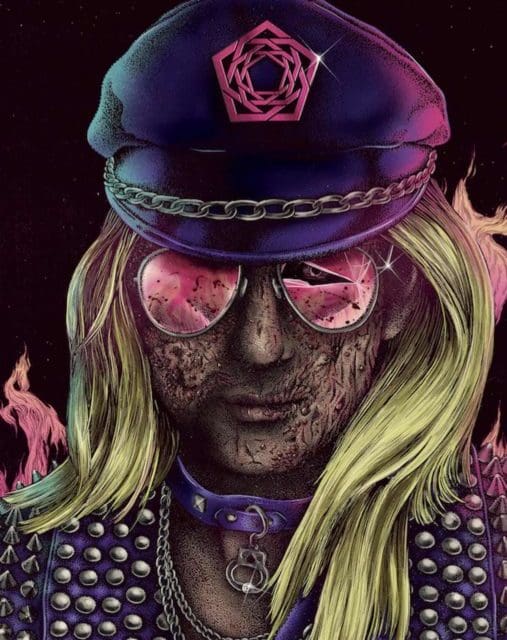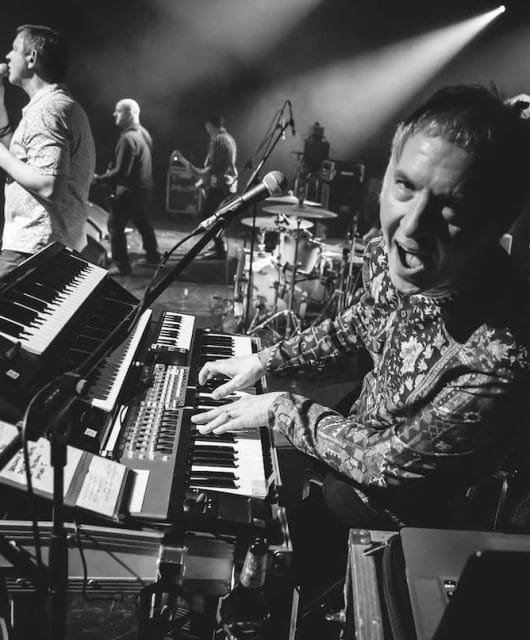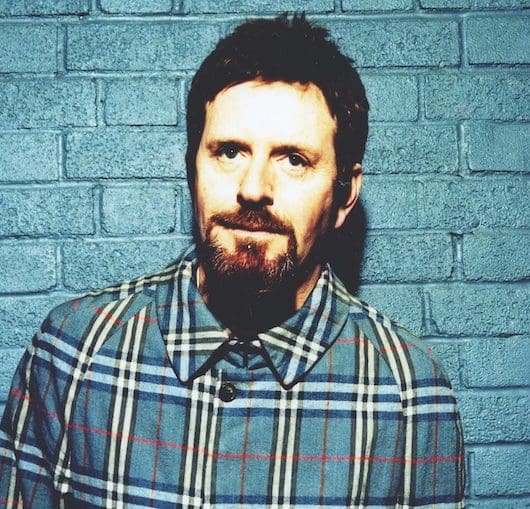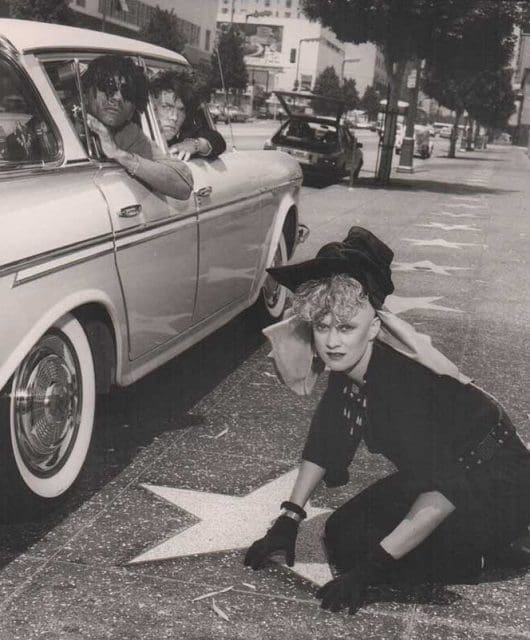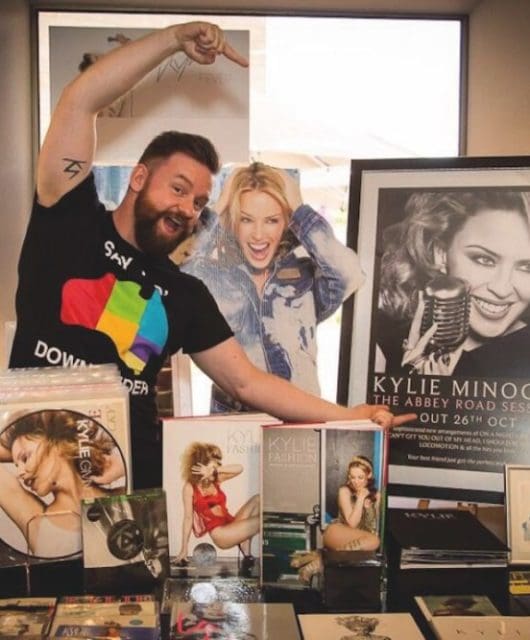Top 20 reunion albums
By Steve O'Brien | June 3, 2021
Rekindling the creative chemistry of old isn’t easy, but here are 20 examples of when it DID work…
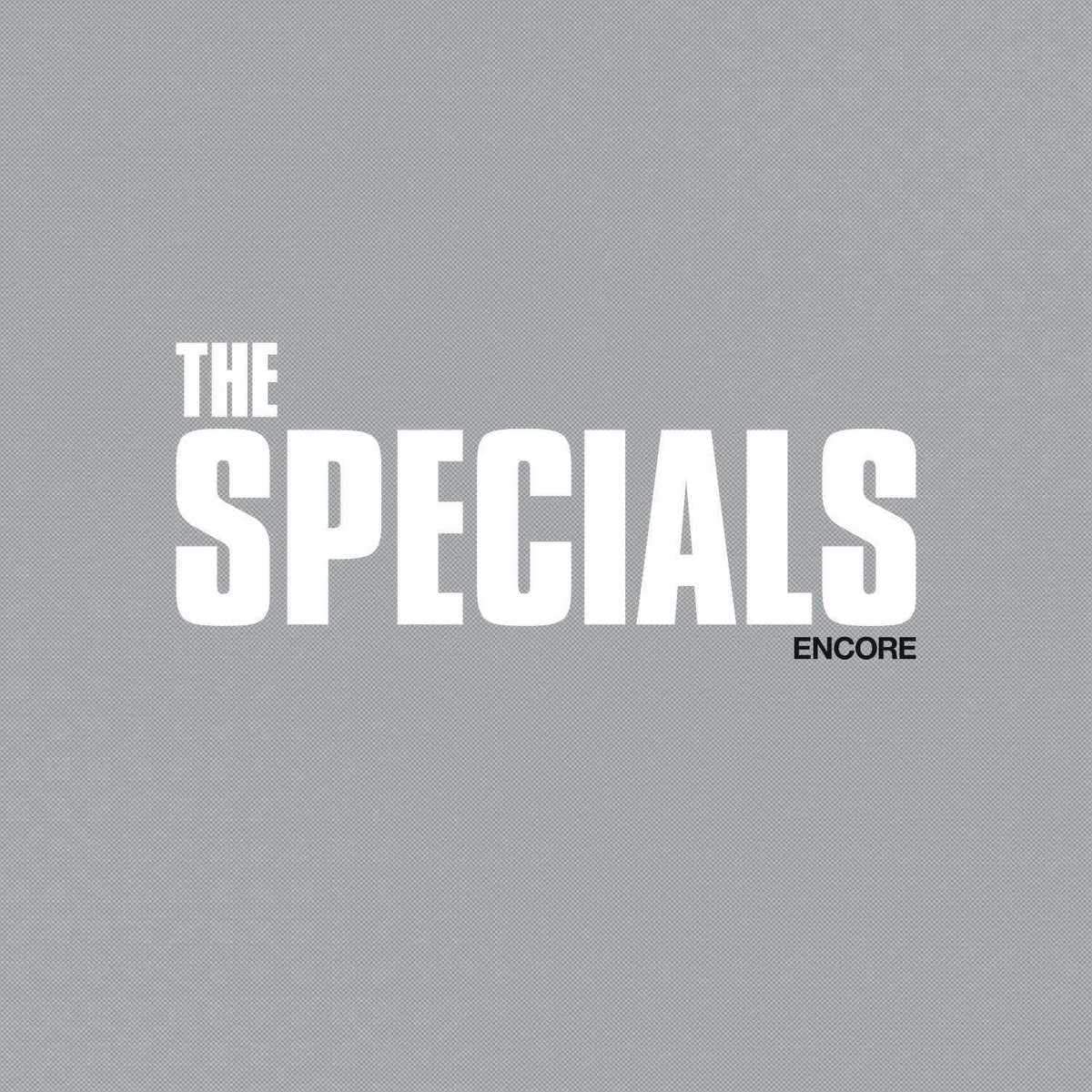
Reunion albums can, by their nature, be hit and miss. It really all depends on the reasons for the band getting back together. If you’re doing it for the £s and the $s, then kiss goodbye to any critical respect or the paying public falling back in love with you. But reunite for the joy of the music or of each other and, hey, who knows if lightning will strike again? Here then are our Top 20 albums where the reunion did work out…
2o – Magazine: No Thyself
Less sugared than his previous band Buzzcocks, Howard Devoto’s artsy post-punk mavericks still had pop hooks to kill for, albeit with crunchier guitars and a less prejudiced attitude to synths. This 2011 comeback album was their first since 1981’s Magic, Murder And The Weather. Blessedly, it’s so much better than that muddled effort, with Devoto on fine songwriting form (“But I’ve made my decision/ To die like a King/ Like Elvis on some godforsaken toilet”). Alas, we’re still waiting on album #6.
19 – The Jesus & Mary Chain: Damage & Joy
It seemed inevitable that The Jesus And Mary Chain (80s/90s version, anyway) would at some point implode in dramatic EastEnders cliffhanger-style fashion (nicknaming their recording studio ‘The Drugstore’ was a clue). But who would have thought the Reid brothers would ever return with an album as thrilling as this? Nineteen years after 1998’s Munki, Damage And Joy offered up the familiar mix of feedback-spiked rockers and woozy-eyed ballads, and announced to the world that even the ugliest of breakups can have a happy ending.
18 – TLC: TLC
How preposterous that a band as colossally famous as TLC had to organise a Kickstarter campaign to fund the recording of their 2017 reunion album. By now slimmed down to just Tionne ‘T-Boz‘ Watkins and Rozonda ‘Chilli‘ Thomas (Lisa ‘Left Eye’ Lopes died shortly after the recording of 2002’s 3D), the self-titled comeback delivered what it promised – nostalgia-charged R&B that was heavy on the girl power. Lead single Way Back (featuring Snoop Dogg) was as funky as anything in their peerless back catalogue.
17 – Chic: It’s About Time
The return of Chic, 26 years after their previous, chronically underloved effort (the celeb-jammed Chic-ism) could so easily have been an exercise in hollow 1970s nostalgia. But to Nile Rodgers’ credit, It’s About Time wasn’t content to merely evoke the ghosts of Studio 54, instead updating the classic Chic sound for the 21st century, with the help of so-modern-it-burns hitmakers such as Nao, Mura Masa and Cosha. Yet for all the millennial cameoing, it’s Rodgers’ shimmering guitar work that shines the brightest.
16 – The Go-Go’s: God Bless The Go-Go’s
Many punk groups fizzle out as middle age sets in. However, that’s not a brickbat you could ever hurl at The Go-Go’s, as evidenced by their fourth album in 2001, released a full 17 years after their third and their first since singer Belinda Carlisle became a titanic pop star in her own right. Though every bit as fiery and feisty as their previous efforts, God Bless The Go-Go’s failed to set the albums charts alight, crashing at an unhappy No.57 on the Billboard (though Billie Joe Armstrong-co-penned single Unforgiven did manage a healthy No.22).
15 – My Bloody Valentine: m b v
Less a comeback album and more one of music’s longest works-in-progress, My Bloody Valentine, or head honcho Kevin Shields anyway, had been toiling away on m b v for 16 years prior to its release in 2013. Luckily, My Bloody Valentine’s first long-player since 1991’s Loveless proved worthy of the agonising wait, with m b v winning gushing reviews and making many of the end-of-year Best Of lists. Luscious, languid and sky-scrapingly strange, m b v was the sound of a band falling back in love with music again.
14 – Blancmange: Blanc Burn
Synth-pop pioneers Neil Arthur and Stephen Luscombe, aka Blancmange, called it a day in 1986, shortly after the release of their third studio album, Believe You Me. A quarter of a century later they were back with Blanc Burn, a deliciously peculiar clutch of songs that, with their analogue synths and Indian percussion, gave the impression that it was simply 12 months later, not 25 years. Quite simply the best comeback album La Roux never made. Arthur continues to go from strength to strength as the solo captain of the Blancmange ship.
13 – A Tribe Called Quest: We Got It from Here… Thank You 4 Your Service
Tribe’s 1998 album, The Love Movement was a disheartening end to a career that had established the group as one of hip-hop’s most playful outfits. Fast forward 18 years and this reunion LP was a much more assured effort. With guest slots from Kanye West, Jack White, Elton John and Andre 3000, it was a triumphant return to form, although it arrived with a cloud hanging over it – founding member Phife Dawg died from complications with diabetes shortly after recording his parts.
12 – Tears For Fears: Everybody Loves A Happy Ending
Curt Smith departed Tears For Fears in 1991, after the release of third LP The Seeds Of Love two years earlier. The pair of Tears For Fears albums that followed then were essentially Roland Orzabal solo efforts, so when Smith decided to rejoin his bandmate in 2000, corks were popped that the dream team were once more recording again. Everybody Loves A Happy Ending was released in 2005, shortly after comeback single Closest Thing To Heaven became Tears for Fears’ first Top 40 hit in a decade. Result.
11 – Soft Cell: Cruelty Without Beauty
These days, Soft Cell are cherished so much that only the O2 seemed grand enough for their much-vaunted farewell gig in 2018. Back in 2002, however, Marc Almond and Dave Ball’s star wasn’t quite so bright, with the singles off their reunion album languishing at Nos.52 and 39 respectively. Which is more than criminal, as Monoculture and The Night are as deliciously seedy as anything from their 80s salad days. Spilling over with piss and vinegar, Cruelty Without Beauty was vintage Soft Cell.
10 – Boy George And Culture Club: Life
George O’Dowd’s voice may be somewhat throatier than it was when the group last put out an album, but in every other respect, 2018’s Life was a classic Culture Club LP, with its reggae and soul vibes recalling the band’s glory days. That’s not to say it sounds like a museum piece, as Life feels as connected to the music of today as it does the world of Thatcher and Reagan. And any album that has a song with a title as fantastically camp as Resting Bitch Face is alright by us.
9 – Devo: Something For Everybody
Nerdy prankster-conceptualists Devo split in 1991, before reuniting in 1996. Though there was occasional new music after that, fans had to wait until 2010 for the first fresh Devo long-player since 1990. Something For Everybody almost lived up to its name, giving fans of both early and later era Devo something to savour, from the arch art-rock of their Duty Now For The Future heyday to the skewed synth-pop from their Smooth Noodle Maps album. “It’s all the same, there’s nothing new,“ they sing knowingly on What We Do.
8 – Take That: Progress
Gary Barlow, Mark Owen, Jason Orange and Howard Donald had already made a lovebombed comeback with the 9× platinum-selling Beautiful World in 2006, but it wasn’t until 2010’s Progress that Take That (briefly) reunited as a five-piece. With Robbie Williams back in their ranks, there’s an edginess and a sense of cocked-eyebrow irony to Progress that simply isn’t there when it’s just Gary Barlow on songwriting duties. Sadly, Robbie’s reunion with Take That appears to have been a one-album deal.
7 – Duran Duran: Astronaut
Though Duran Duran continued making records after the departures of Andy Taylor and Roger Taylor in the late-80s, it left the 90s iteration of the group with as many original members as there were in spin-off band Arcadia. The Brum boys made many fine albums with replacement guitarist Warren Cuccurullo, it’s just that those records never quite felt like the genuine article. 2004’s Astronaut, though, was the first album in 21 years to feature the original five members, and it marked a rousing return to form. Duran Duran was dead, long live Duran Duran.
6 – Echo & The Bunnymen: Evergreen
Guitarist Will Sergeant and bassist Les Pattinson had tried keeping the Echo & The Bunnymen name alive after frontman Ian McCulloch’s 1988 walkout, bringing in singer Noel Burke for the misfiring Reverberation LP in 1990. Seven years later, after Sergeant and McCulloch’s one-album Electrafixion project, the classic Bunnymen line-up reunited for Evergreen. Lead single Nothing Lasts Forever (with backing vocals by Liam Gallagher, no less) is up there with the band’s best, and netted the trio their highest chart entry since 1983.
5 – Orchestral Manoeuvres In The Dark: History of Modern
The very earliest incarnation of OMD – we’re thinking Organisation and Architecture & Morality-era here – found a happy halfway point between avant-garde experimentalism and chart-friendly pop. 2010’s History Of Modern, the group’s first record since 1986’s The Pacific Age, echoes that golden period, even down to its Peter Saville-designed cover. While songs like If You Want It, Bondage Of Fate and Sometimes recall their 80s work, other tracks like Pulse sound burningly contemporary.
4 – Rain Tree Crow: Rain Tree Crow
Given how incredibly Japan-like this album sounds, it’s a mystery as to why David Sylvian, Mick Karn, Steve Jansen and Richard Barbieri released it not under the Japan name, but under the new moniker of Rain Tree Crow. It may have been 10 years since their last studio effort, but in every other way Rain Tree Crow sounds as if it was simply the next album in line, just as stark, desolate and beguiling as Gentlemen Take Polaroids, Obscure Alternatives or Tin Drum. Tragically, this would be the last hurrah for ’Japan’ under any branding.
3 – Blondie: No Exit
There aren’t many bands who reunite after 17 years and shoot straight to No.1, but that’s what No Exit’s lead single Maria did in 1999, giving the New York pop-punks their first UK top-tickler in nearly two decades. Compared to their previous release, 1982’s The Hunter, No Exit sounds like a band having fun, with the LP spanning a smörgåsbord of genres, including pure pop, country, reggae and hip-hop. The then-hotter-than-the-sun rap star Coolio guest stars while Craig Leon is on production duties.
2 – Blur: The Magic Whip
Blur’s previous album to The Magic Whip was the virtually Graham Coxon-free Think Tank in 2003, an LP that managed to sound more like a first-draft Gorillaz release than a bona fide Blur record. Thankfully, The Magic Whip, made largely in Hong Kong after the four-piece’s 2009 reunion, found Blur on surer sonic ground, with an album that evoked memories of so many of the band’s eras, from the springy pop of Lonesome Street to the electro-psych of Thought I Was A Spaceman.
1 – The Specials: Encore
Between 1980’s More Specials and 2019’s Encore there had been five official Specials long-players. But without the spiky croon of original vocalist Terry Hall, they felt like imposter records, albums that were Specials in name only. Their numbers have dwindled in the years since that 2008 reunion of the original line-up, but with Hall back behind the mic, eighth album Encore sounded, finally, like a legit Specials effort. Despite the three remaining members being part of the sexagenarian squad, Encore was as fired up and politically engaged as anything from their twentysomething prime. Brexit (Vote For Me), knife crime (Embarrassed By You), sexism (the Prince Buster-riffing 10 Commandments), everyday racism (B.L.M.) and mental health (the soul-baring The Life And Times (Of A Man Called Depression)) were all on the lyrical menu this time. There’s even an exhumation of one of the Fun Boy Three’s most memorable tracks, The Lunatics (Have Taken Over the Asylum), a song given fresh meaning in a world of Trump and Johnson.
More musically promiscuous than anything else in their stellar back catalogue – the album takes in ska and reggae with Chic-style disco, moody electronica and spoken-word pieces – Encore won rave reviews and would become The Specials’ first ever album to hit the No.1 spot.
It was an LP that showed the doubters that Terry Hall, Lynval Golding and Horace Panter weren’t just a band with a glorious past, they had a brilliant and exciting future, too.

Steve O'Brien
Steve O’Brien is a writer who specialises in music, film and TV. He has written for magazines and websites such as SFX, The Guardian, Radio Times, Esquire, The New Statesman, Digital Spy, Empire, Yours Retro, The New Statesman and MusicRadar. He’s written books about Doctor Who and Buffy The Vampire Slayer and has even featured on a BBC4 documentary about Bergerac. Apart from his work on Classic Pop, he also edits CP’s sister magazine, Vintage Rock Presents.www.steveobrienwriter.com

